News feed
One of Asia's IT revolutionaries returns to BME as a patron
2025. 07. 03.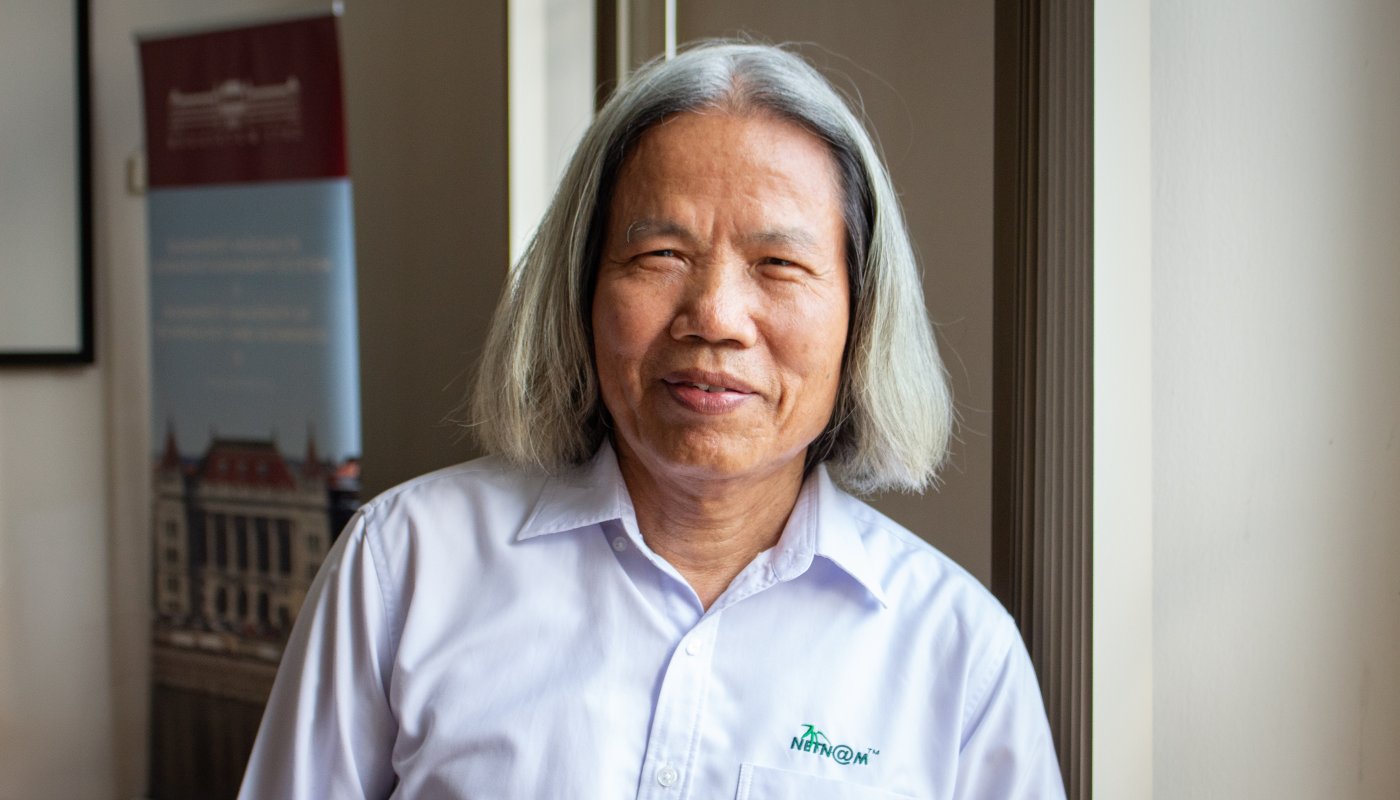
Before retiring as the head of a major Vietnamese internet service provider, Tran Ba Thai, a former BME student, donated a significant amount of his own money to support talents.
Any self-respecting university relies heavily on its alumni community, it is not common for a former student to make an offer to his alma mater like the one Tran Ba Thai made to BME.
The Vietnamese businessman, who graduated at BME as an electrical engineer in 1974, offered to give 100,000 euros (about 40 million forints) from his personal wealth to help the BME establish a scholarship. It will be used partly to pay the tuition fees of Vietnamese students in need and partly to support Vietnamese or Hungarian students who are at an advanced stage of their studies and who have carried out outstanding project work in subject areas specified by the donor.
The idea came from the golden diploma
Tran Ba Thai received his golden diploma in electrical engineering last year from then Dean Charaf Hassan and Rector Tibor Czigány. He was not able to attend the event in person, but that was when the idea of supporting the project came to him. (Since recruiting as many foreign students as possible is an important part of the university's internationalisation strategy, such a resource benefits not only the students concerned but indirectly also BME itself.)
It turned out that Mr Tran is the founder of NetNam, a Vietnamese internet service provider, and currently chairman of its board. In his home country, he is considered one of the entrepreneurs who brought the internet to the country. He was previously named by Asiaweek, a (now defunct) magazine owned by the publisher of Time magazine, as one of the three most significant "IT revolutionaries" on the continent.
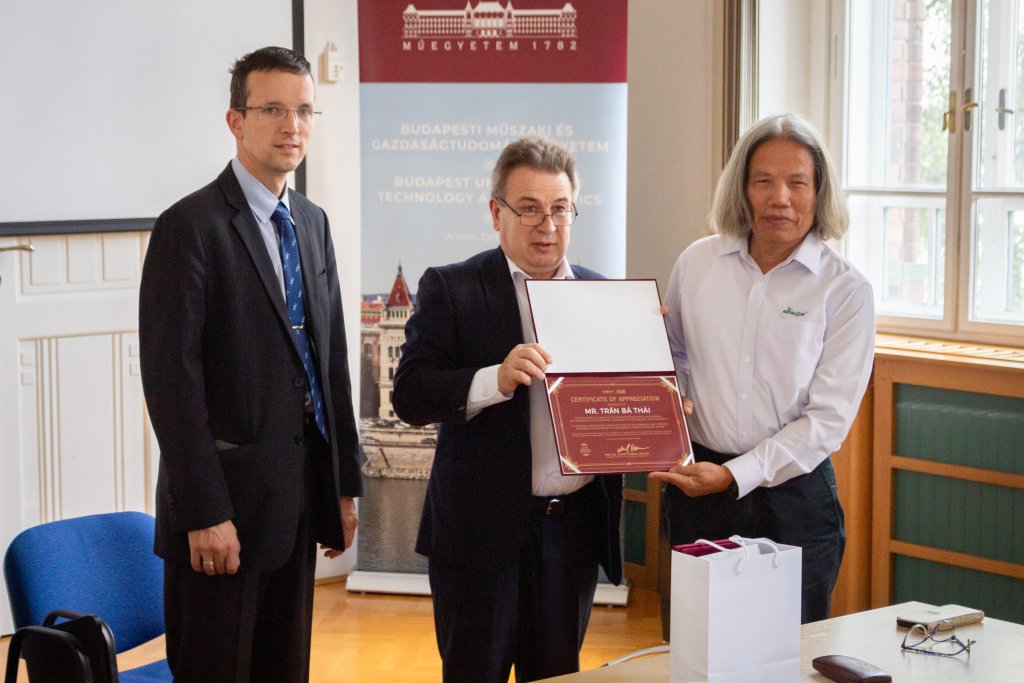
Péter Kiss, András Nemeslaki and Tran Ba Thai
The businessman came to Hungary with a business delegation and his wife, also a graduate of BME. He was greeted by András Nemeslaki, Vice Rector for International Affairs, Gergely László Vigh, Head of the Directorate for Foreign Language Education, Bíbor Klekner, Head of the Directorate for International Relations (NKI), and Péter Kiss, Dean’s Rep for International Affairs at the Faculty of Electrical Engineering and Informatics (VIK).
The meeting was held in English, but Tran Ba Thai also gave a short speech in Hungarian. Although he has not been to Hungary for 50 years,
his pronunciation was almost perfect when saying that he was still very grateful to the university for what he had received.
With visible emotion, he explained how lucky he had been in the late 1960s to leave behind the horrors of the Vietnam War and study in a peaceful European country.
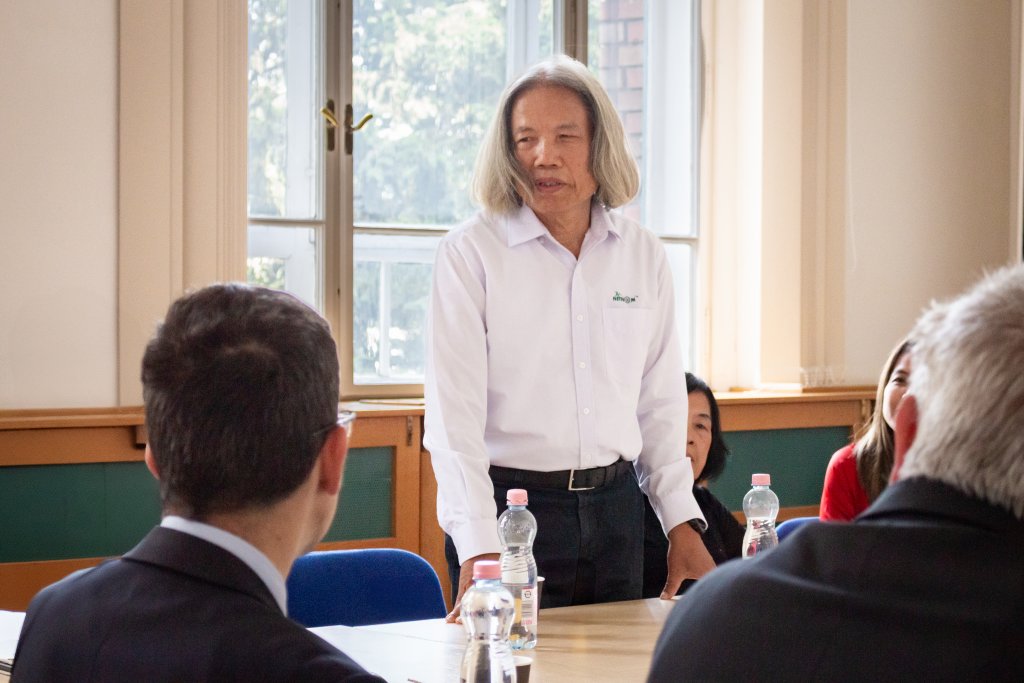
The first day of the visit ended with an unconventional campus tour led by Zsolt Lesetár, International Coordinator, in the company of the NKI staff. The programme continued the next day at the VIK. Tran Ba Thai has spent most of his 50 years in the V2 building, which was demolished since then. Both he and his wife attended the Department of Electronic Technology (ETT) for specialisation, which is now located in V1, so the signing of the donation contract took place there, in a familiar environment.
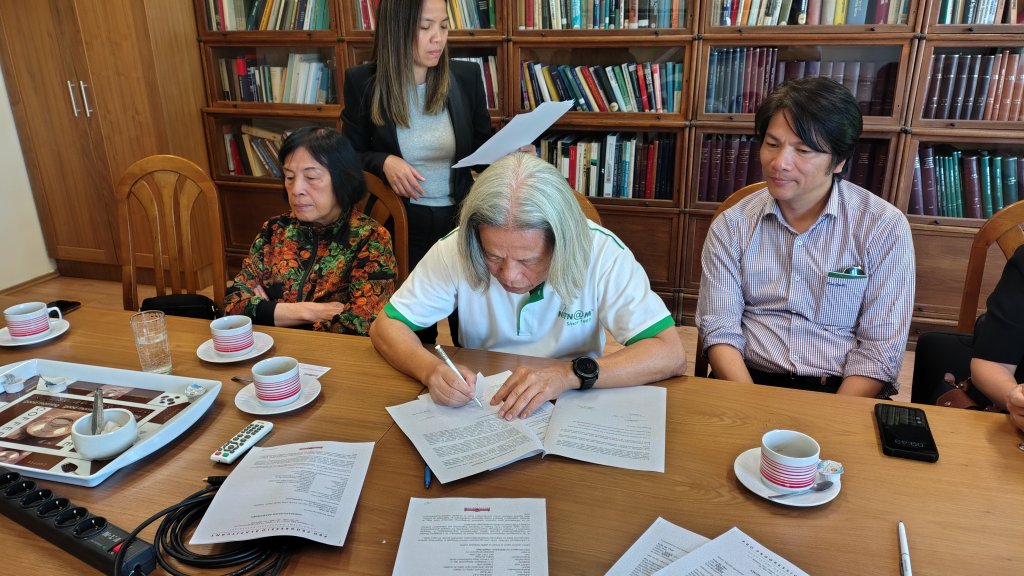
Accompanied by Gábor Horváth, Deputy Dean of Science, and Péter Kiss, he visited the High Voltage Laboratory of the Department of Electric Power Engineering, where Dániel Balogh, a PhD student, gave a spectacular demonstration, and then the ETT laboratory, where he was shown around by engineer Dániel Rigler. Although speaking in English, he pronounced the older technical terms in perfect Hungarian ("The PCB is 'nyomtatott áramkör', isn't it?")
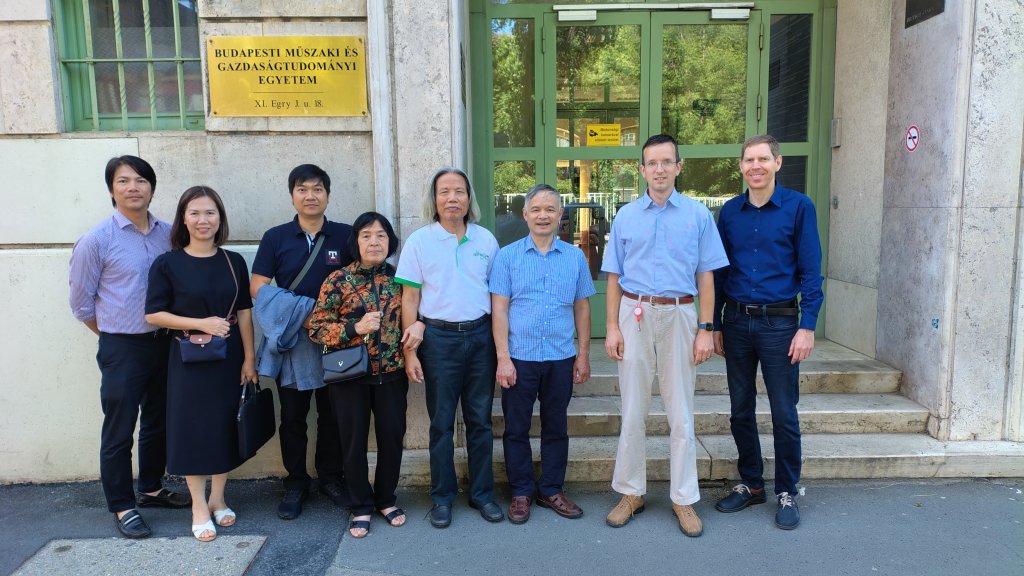
During the visit, bme.hu also had the chance to ask a few questions.
Can you recall why you chose BME for your studies?
Frankly, I did not decide about it, my government did. I had good results in school and I was selected. My school had more than 100 students, and four of us were ready to go abroad. I was one of the them, and I came to Hungary with the support of our Ministry of Education.
What are your memories of the university from the early seventies?
I am from the centre of Vietnam where the war was very tough. In my class, we had more than ten guys who went to the battlefield as a soldier, and didn't come back. It was a privilige that I could come here. Otherwise I think I would not exist. I owe my my gratitude to my friends, to the government that decided to give me a chance to study, and last, but not least, the BME for providing me not just knowledge, but also cultural values. Beck home, we had to live with the war, trying to survive, but here was the higher education of the civilized world and I was just very grateful for that. My career has been successful, not just in terms of money, and I think I should give something back.
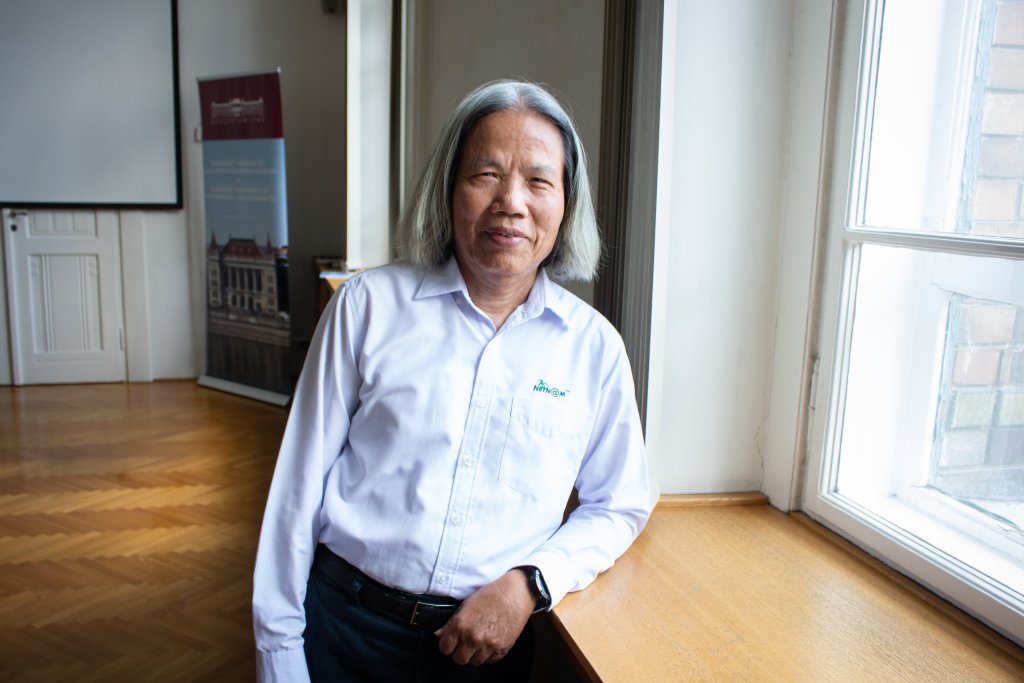
Do you think BME had a significant role in your achievements?
Yes, I think the first and the most. It gave me a lot of cultural values, a lot of professionalism. I became one of the few people who introduced the internet technology in Vietnam, and I thank that to learning the entrepreneurial strength, the engineering spirit, and teamwork. I had a research project here with two Hungarian students, we worked in a team of three and I think were quite successful. I continued that spirit into my work.
Why do you consider it important now to help Vietnamese students who study here?
I’d like to help them overcome difficulties, learn real teamwork and have entrepreneurial spirit. I am about to retire, and my duty is to pay back what I got from society, including the BME and Hungary. So I teamed up with a foundation and a government agency in Vietnam to help the students using my private money, and then I contacted BME and now we are signing the funding contract. Beside my country, BME and Hungary have the second place in my heart.
pg
